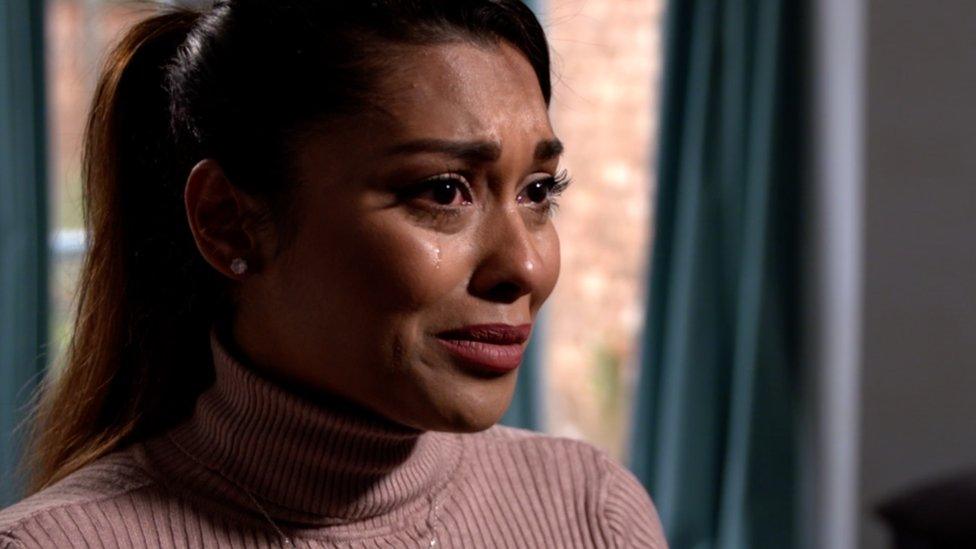Forced marriage cases will stay 'underground' after law change
- Published
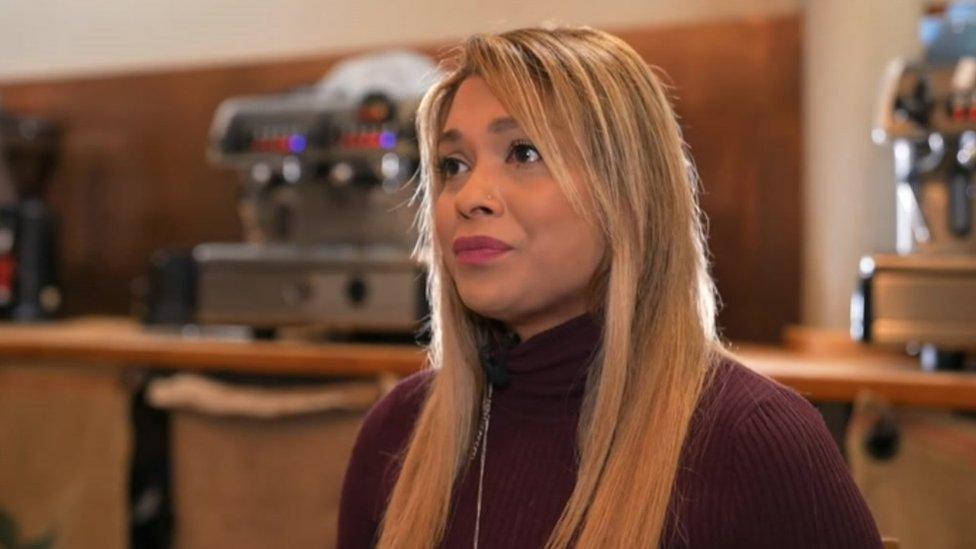
Rubie Marie, from the West Midlands, was 15 when she was forced to marry a man who was twice her age
Survivors of forced marriage fear cases will remain underground, despite a new minimum-age law designed to crack down on children being married.
It comes after the minimum legal marriage age in England and Wales was increased from 16 to 18, in 2023.
A government spokesperson said child marriage "destroys lives".
One woman who was held at gunpoint and forced into wedding her cousin at 16, said the options she had were "death or marriage."
The government's forced marriage unit (FMU) provided support and advice to 302 cases in 2022,, external with almost one third affecting victims who were aged 17 or under., external
After London, statistics show the West Midlands has the country's highest percentage of cases, external, with 17%.
The FMU, set up by the Foreign and Commonwealth Office and the Home Office, said it gave advice to 337 cases in 2021, external, compared to 759 in 2020, although it stresses the data was not directly comparable.
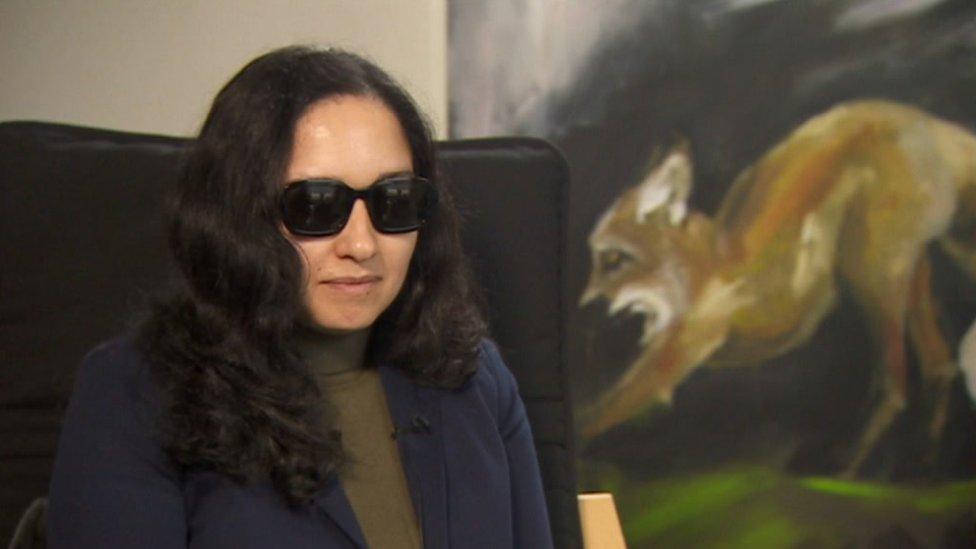
Fozia Rashid, from Nottingham, was held at gunpoint in Pakistan and forced to marry her cousin
However, campaigners say the true number of cases in the UK has been "under-reported" as some people were reluctant to approach authorities.
Karma Nirvana reported its national honour-based abuse helpline, external was contacted 9,616 times in 2022-23.
The specialist charity said it provided support to a total of 2,346 cases in the same period, including 417 people who were facing forced marriage.
Fozia Rashid, 39, said some people sometimes get "tricked into going abroad" but "we can't forget that not everybody comes back".
"Forced marriage, it knows no religion, it knows no colour, it doesn't care about your background," she said.
"I think if the law was changed to say you have to be at least 21 years of age to get married, that could only be a good thing for all young adults."
'Raped every day'
Forced marriages, where one or both people do not or cannot consent to the marriage, was criminalised in 2014.
The Marriage and Civil Partnership (Minimum Age) Act, which came into force on 27 February 2023, means it is now a criminal offence to arrange marriages for those aged 17 or below.
Rubie Marie, 41, who said she was "raped every single day" after she was forced, aged 15, to marry a man twice her age, said forced marriage in the UK was "a lot more hidden" despite the new law.
She said the new law was "amazing", but it wouldn't deter those who wanted to get their child married as they would "do anything for it to carry on".
"I don't think that it's easily going to be stopped," she said.
"It's going to push more and more underground."

Held at gunpoint
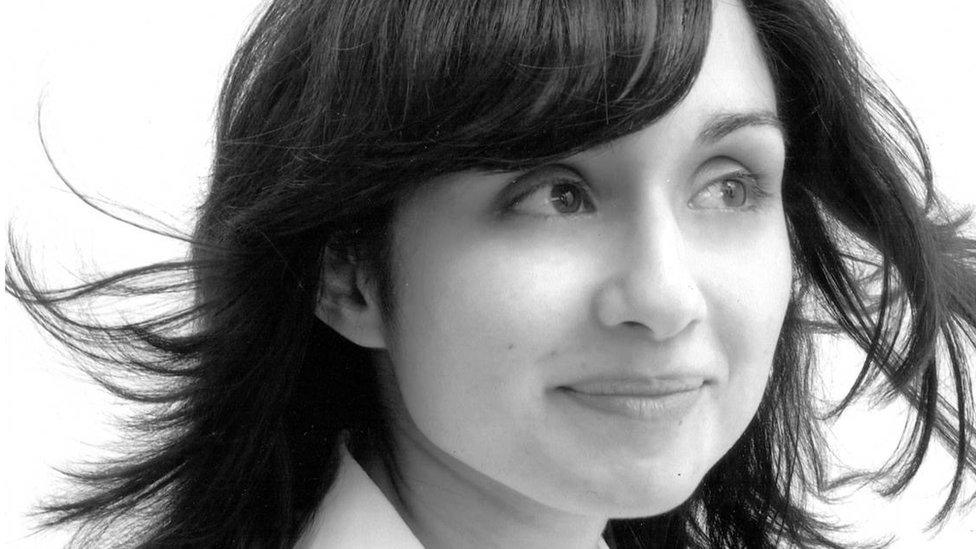
Fozia Rashid said she went ahead with her marriage "out of fear" after she was threatened by her uncle
For Fozia Rashid, from Nottingham, what was supposed to be a trip to see family in Pakistan, ended in a "nightmare."
Having just turned 16, she was told her grandparents were unwell and that she should "see them for one last time".
"I went to Pakistan and within two weeks, I was married," she said. "My grandparents were perfectly fine, they weren't dying."
After arriving in Kashmir, she said she was held at gunpoint by her uncle, who threatened her into marrying his son.
Her parents had no idea she was being forced and thought it was a real marriage.
But Fozia had secretly been told if she didn't go ahead with the wedding, she and her family would be killed.
"I went ahead with it, out of fear," she said "The option for me was death or marriage.
"It wasn't something I had wanted, it wasn't something I had planned for, it wasn't of my choice - I was a child."
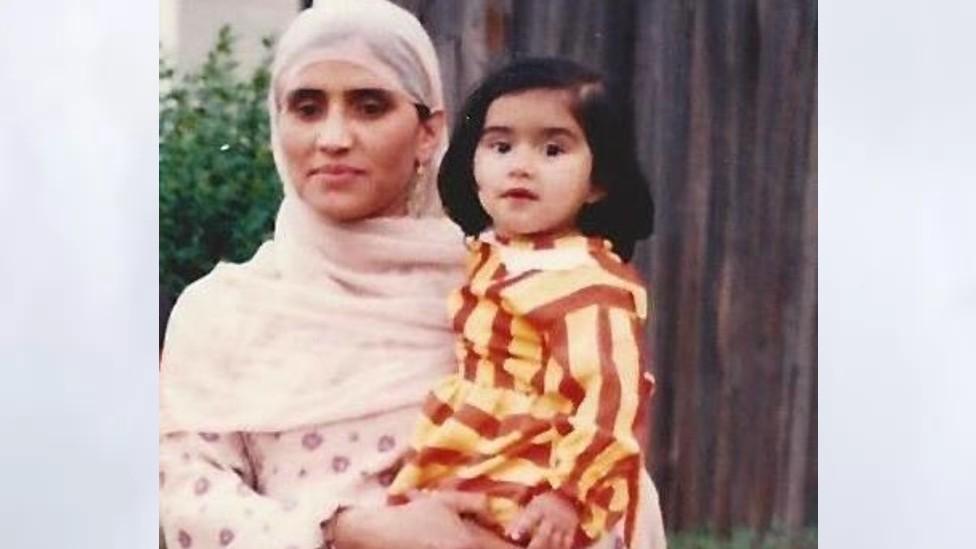
Fozia's parents supported her when she told them the truth and said she was going to divorce her husband
Forced into marriage, she was told how to behave, so her new husband could get a visa to allow him to move to the UK.
"The person I was married to, he made it clear I was just a thing, I was just an object to him.
"I heard my uncle telling my aunt that actually now they've got the visa, there's actually no need for me and they could just get rid of me and tell my parents that I ran away," she said.
But back in the UK, she told her parents the truth and they stuck by her and supported her plans for divorce.
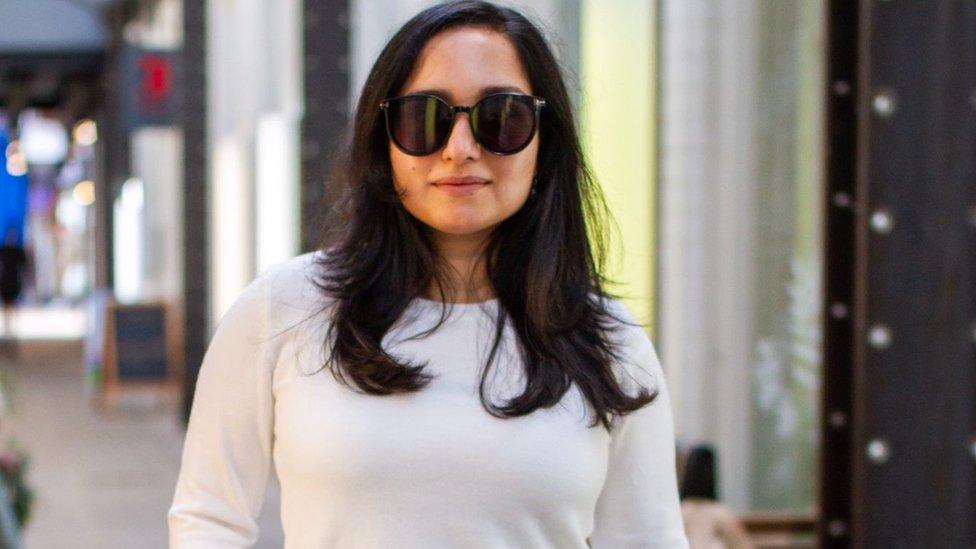
Fozia remembers the embroidery on her clothing on her wedding day and the heat in Pakistan, where it was summer
But the stress of her ordeal had resulted in damage to her eyes, she said, adding it was something she now lived with, as a "direct result of what had happened".
"It caused so much pressure on the back of my eye from my brain, my eye erupted and I needed surgery, my eyes are now light sensitive," she explained.
Fozia supports the change in age, but she believes increasing it further to 21 could "change everything for all of us," because there was "not much difference" between 16 and 18.
"It's coming up to 24 years ago when I was forced into marriage, and had the law been different at the time, that wouldn't have happened to me," she told the BBC.
"There are still plenty of Fozias out there that this will continue to happen to."

What does the law say about child marriage?
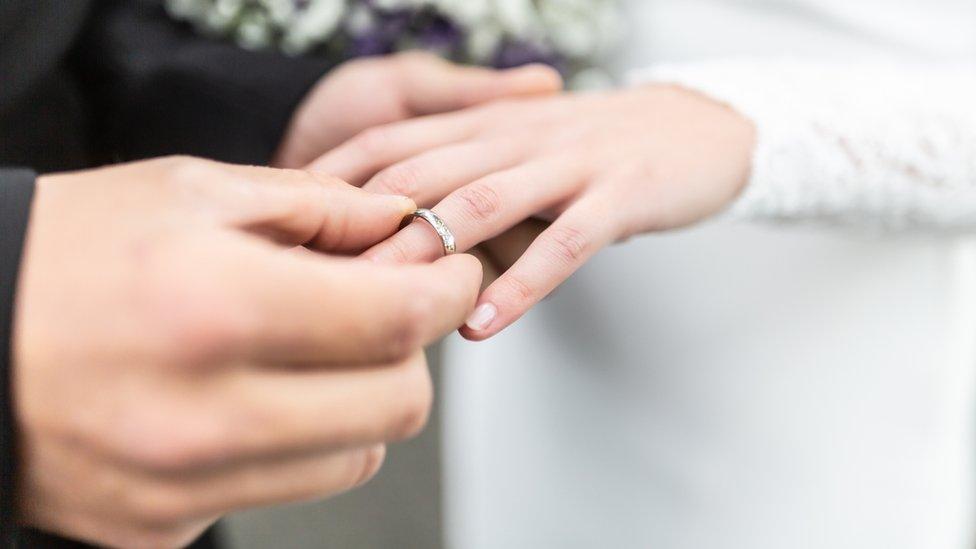
The legislation also covers non-legally binding ceremonies which would still be viewed as marriages by victims and their families
Since 27 February 2023, external, it has been a criminal offence to do anything to cause a child to marry before they turn 18, even if coercion is not used
Previously, people could get married at 16 or 17, if they had parental consent
Those found guilty of arranging child marriages face sentences of up to seven years in prison
If an underaged marriage is arranged outside the UK, it can be prosecuted in England and Wales
The legislation also covers non-legally binding "traditional" ceremonies, such as the Islamic marriage of Nikah

'Why is this happening to me?'
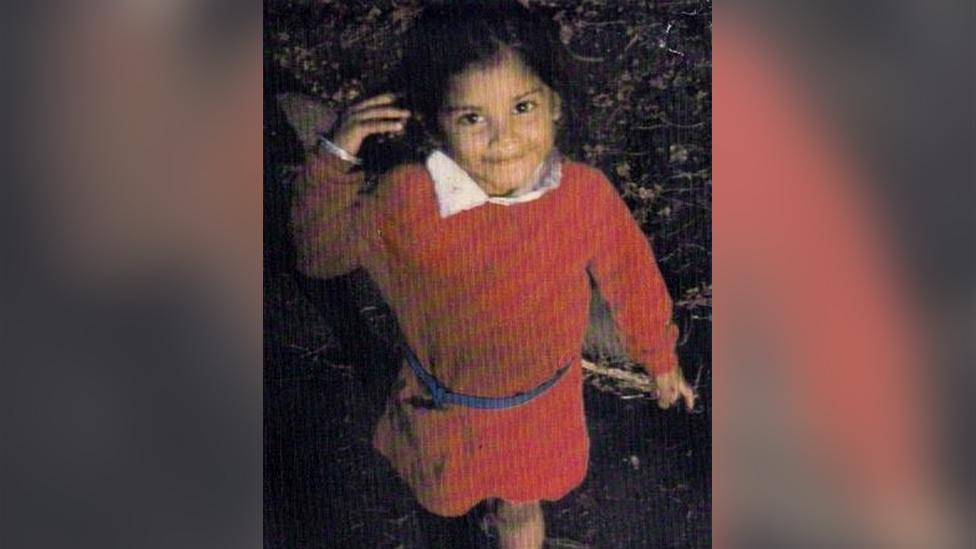
Rubie Marie, pictured as a child, was told her trip to Bangladesh was a holiday
"This man that they got me married to was 30, and I was 15," Rubie says.
Originally from Wales, Rubie Marie is now based in the West Midlands, and talks about a family holiday to Bangladesh where she was forced to marry a man she had never met.
When she had been in Bangladesh for six months, while having dinner with the family, her father suggested out of the blue that she should get married.
"He just casually, just so casually said, 'Wouldn't it be great if we got Rubie married?'," Rubie says.
"Everyone knew, apart from me, what was going to happen, and it was like, 'I've got no choice Rubie, you're just going to have to go with it'.
"I thought why is this all happening to me, I didn't do anything."
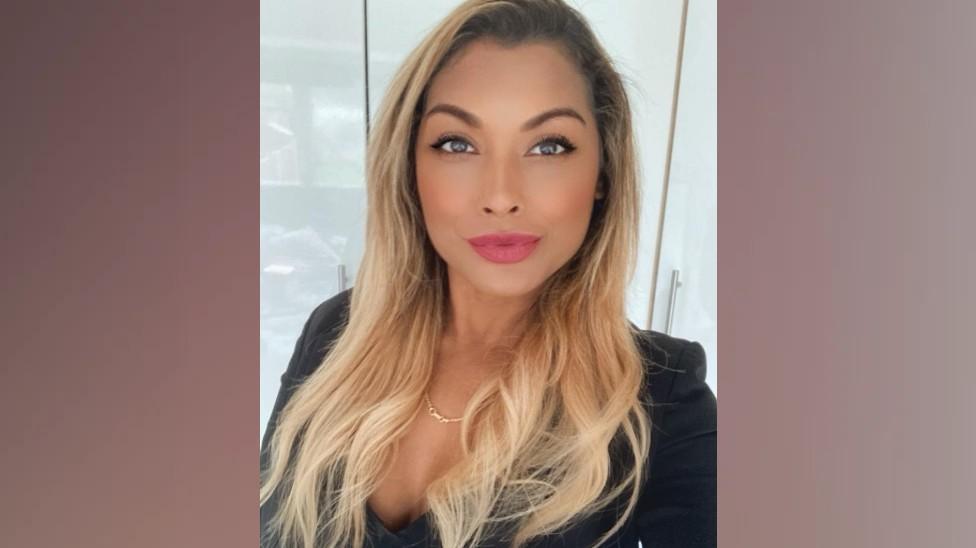
Rubie now works as an ambassador for the charity Oxford Against Cutting, visiting schools to raise awareness
Soon after the wedding day, her new husband wanted a child, in an attempt to find a pathway to get to the UK.
"The rape would happen continuously," she said. "I didn't know that their plan was for me to get pregnant, up until eight weeks after the wedding day."
To try to stop herself getting pregnant, another family member secretly gave her the contraceptive pill, but the plan unravelled when the supply was discovered while she was away.
"I went into a zombie state, I was depressed… I was an empty shell," she said.
After falling pregnant, it was decided she should fly home after becoming bed-bound with illness.
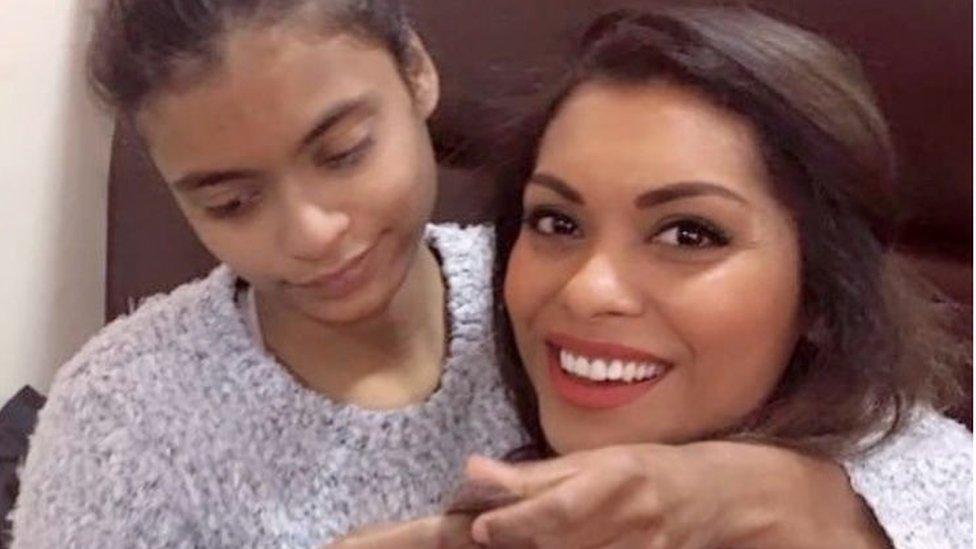
Rubie and her daughter fled Wales and moved to the West Midlands several years ago
Back in Wales and struggling with what had happened, she took an overdose.
"I remember in my bedroom, I then just took loads of pills and I tried to kill myself," she said. "I just thought, 'I'm damaged, no one will be able to connect with me, nobody will be able to understand me or even believe me'."
But Rubie was later able to escape and, with her daughter, she moved to the West Midlands.
Now 41, she is an ambassador for Oxford Against Cutting, visiting schools across the region to educate others on forced marriage and honour-based abuse.
She welcomes the increase in age to 18, but wants to see more education and awareness in schools.
"I would have loved it if there was someone, when I'm 15, sitting in the audience in assembly, and somebody comes in and talks about honour-based abuse and forced marriage," she said.
"That could have spoken to me and I could have realised what was happening with me at home, to then raise the flag."

'Still a grave risk'
Dr Surwat Sohail, CEO of Roshni, said cases of forced marriage were "much higher" than reported because "survivors don't even realise they've been through a forced marriage."
She said the age change was a "step in the right direction" but would not solve all issues.
"Forced marriage impacts on many different age groups, and we need to ensure that we have the right services [and] the right training in place to support," she said.
"There is still a risk, a grave risk that young people could be taken out of the country and left there permanently".
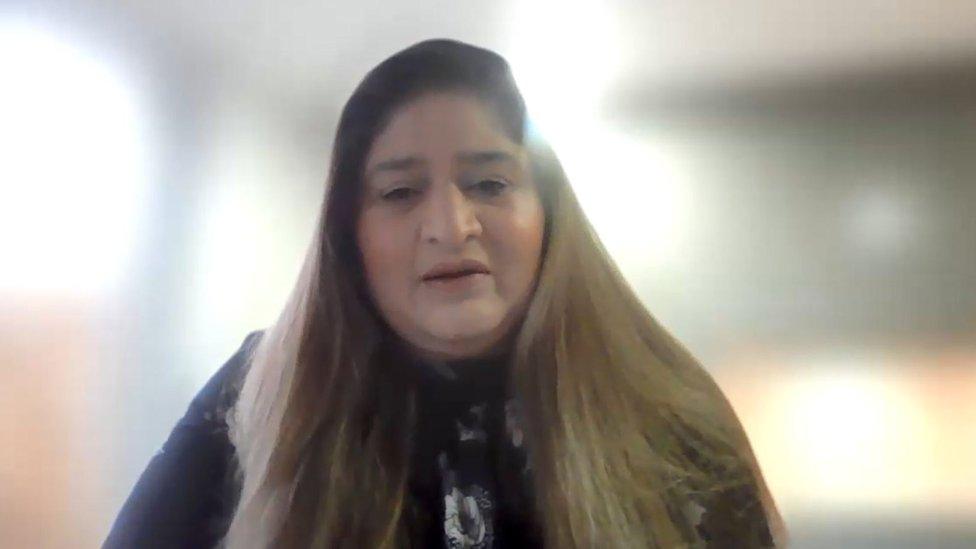
Dr Surwat Sohail says the true number of forced marriage cases in England and Wales is not being reported
Roshni, set up in 1979, supports minority communities affected by domestic violence, forced marriage and honour-based abuse.
"There is a lack of knowledge around what is a forced marriage, what is honour-based abuse - we need to equip our professionals, we need to ensure our young people and older people understand what is a forced marriage," Dr Sohail continued.
"Because, if you don't you're know you're a victim, how could you seek help?"
A government spokesperson added: "Child marriage destroys lives and denies vulnerable children the freedom to learn, grow and thrive, which is why we have increased the legal age of marriage to 18.
"Our dedicated Forced Marriage Unit also provides support and advice for victims and those at risk of forced marriage both in the UK and overseas."
If you have been affected by any of the issues raised in this article, help and support is available via BBC Action Line.

Follow BBC West Midlands on Facebook, external, X, external and Instagram, external. Send your story ideas to: newsonline.westmidlands@bbc.co.uk, external
Related topics
- Published27 February 2023

- Published19 November 2021
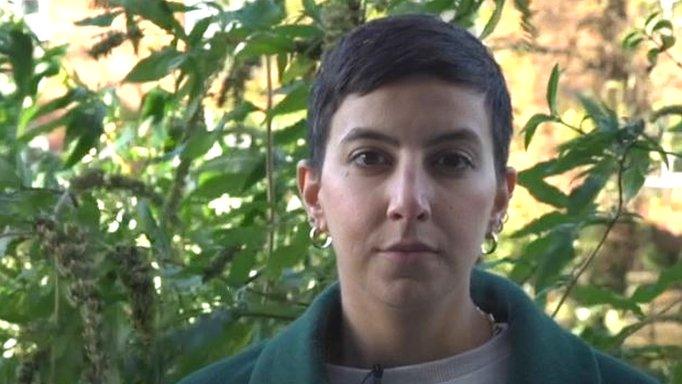
- Published19 November 2021
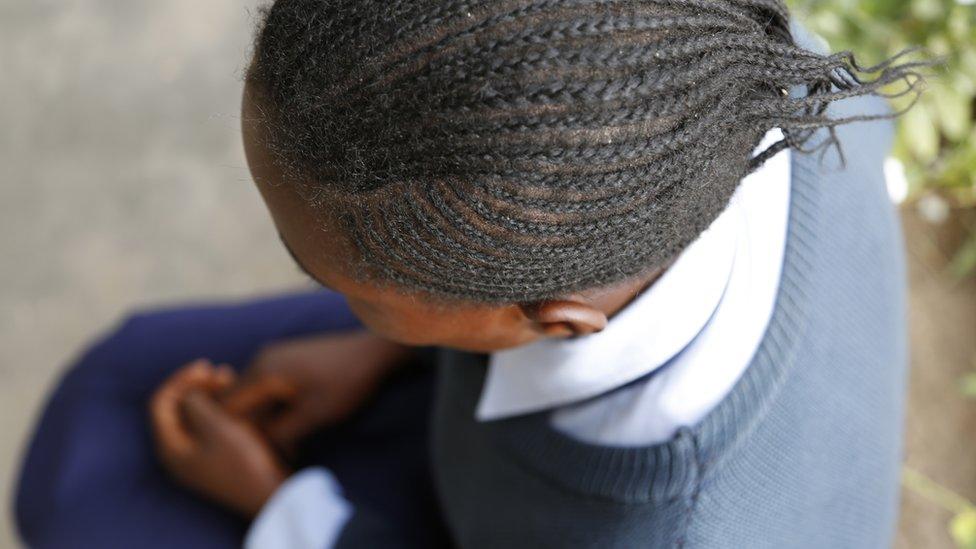
- Published12 July 2019
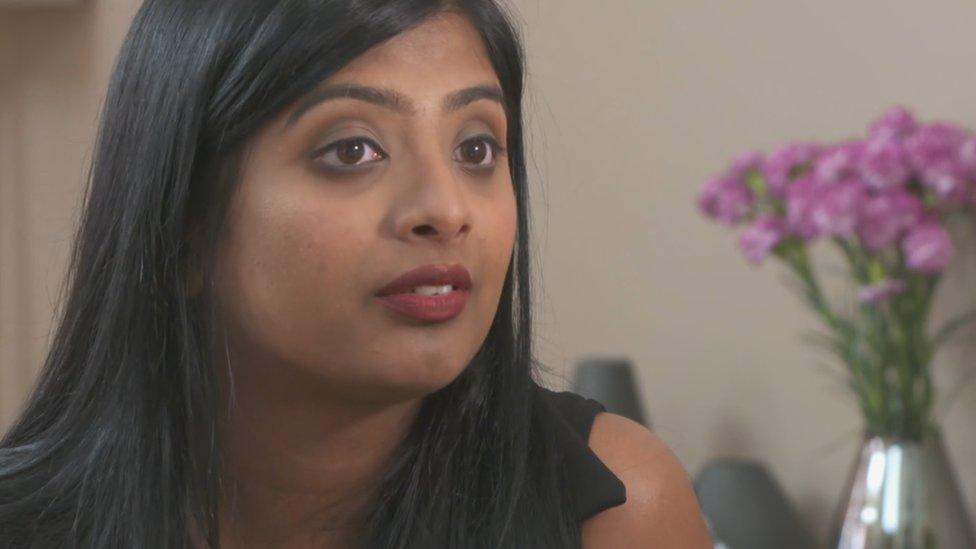
- Published5 December 2018
